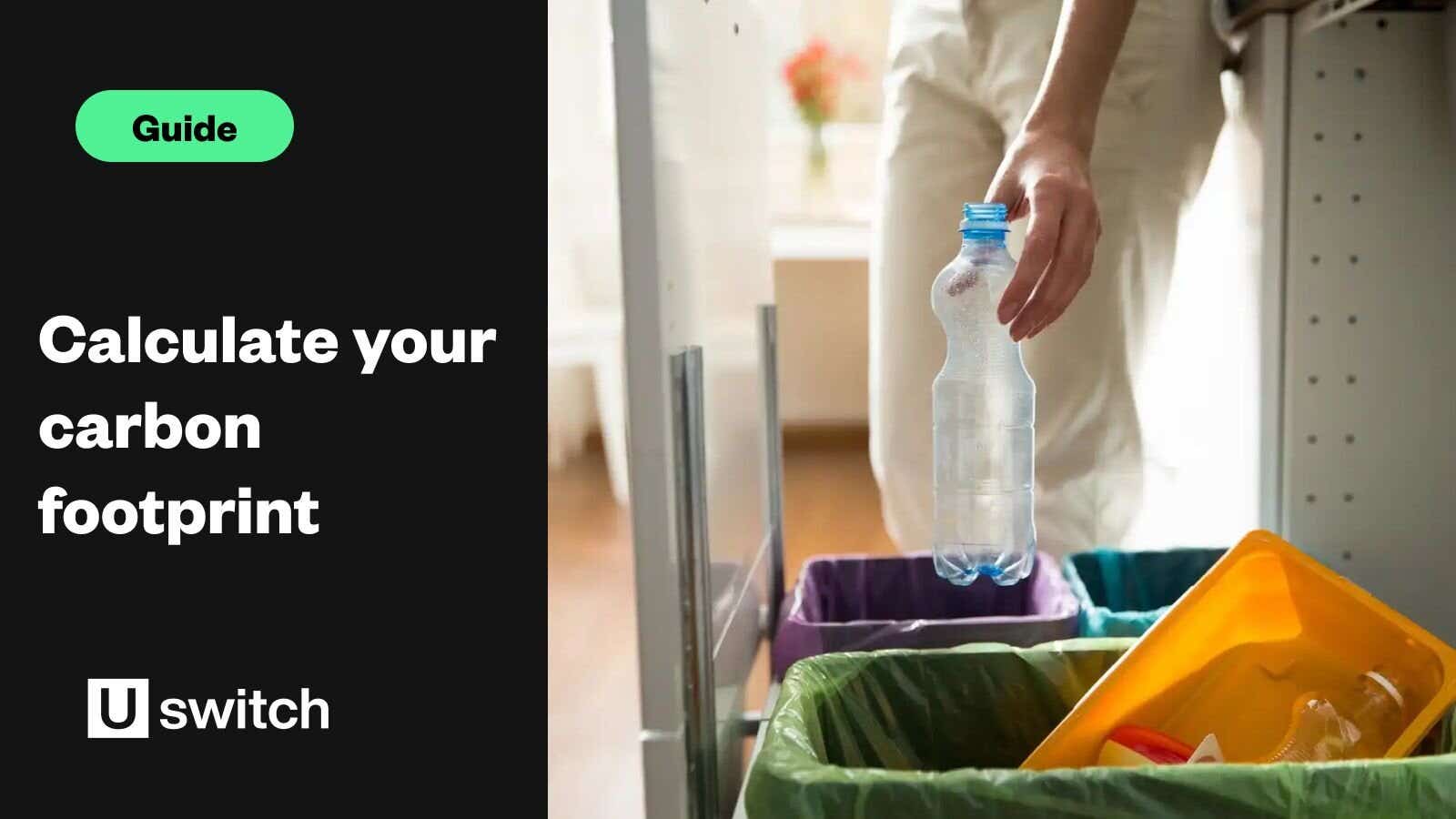At Uswitch we think it's really important to be able to understand your household’s energy consumption. Whether it’s general household utilities, saving money or becoming more carbon conscious. In order to gain a better overview and understanding of this, it’s important to start at the beginning.
Our carbon offsetting calculator will ask you questions about your household’s daily habits - from transport to cooking to charging your phone. Using your habits, it will calculate how green your home is by looking at how much CO2 you produce per week.
You’ll be able to compare yourself to what the rest of the country is doing, and understand more about what the average amount of CO2 households in the UK produce. To find this, follow the ‘see averages breakdown’ button.
If you're looking for tips and tricks on how to reduce your carbon footprint, or simply save money, read our tips section below your result. From solar panels to smart meters, to switching to a green energy supplier, everyone can do their little bit to help reduce the world’s carbon footprint.
Carbon footprint FAQ
What is a carbon footprint?
A carbon footprint is the amount of carbon dioxide produced by one or more people, organisations or groups. Carbon footprints are produced as a result of taking part in activities that produce carbon dioxide such as driving, flying, construction, eating meat and more.
How does my carbon footprint affect the environment?
Everyone’s carbon footprint adds to damaging the environment in different ways, from contributing to greenhouse gasses which causes the earth's atmosphere to trap heat and melt ice caps to using non-recyclable materials that end up in mass landfills around the world.
Which countries have the highest carbon footprint?
According to the UCSUSA (updated July 2023), China has the highest CO2 emissions, contributing to 31% of the global carbon dioxide production. The USA comes second, contributing 13% and India comes third, contributing 7%.
The UK comes 17th, contributing 1% to total global carbon emissions.
Which counties have the lowest carbon footprint?
According to the EM, Denmark has seen the biggest percentage change since 2000, with a 30% CO2 production decrease. Ukraine comes second, with -29% and Hungary places third with a 24% reduction.
The UK has seen a 20% reduction in carbon emissions since 2000.
How can I be more sustainable on a budget?
It’s still possible to be more environmentally friendly even when on a budget.
- Opt for public transport, walking or cycling when you can, instead of using the car
- When driving, keep your car and boot empty to avoid extra weight
- Incorporating vegetarian and vegan meal alternatives, even for a few days of the week can cut your diet’s carbon footprint in half over time
- Use the cooler setting on the washing machine
- Use the eco cycle on the dishwasher
- Opt for jumpers and hot water bottles instead of using the heating (where you can)
- Take shorter showers
- Turn off plugs at the socket when not using them
- Use energy-saving light bulbs - they may cost slightly more in the short term, but they will last longer over time
- Request the installation of a smart meter to help track your daily usage.
How can I be more environmentally-friendly?
By being more environmentally friendly, you can have a direct impact on being more conscious about the planet.
- Checking food packaging is recyclable and recycling it correctly
- Buying local produce
- Order a food waste bin from the council
- Reduce takeaways
- Taking larger items to local clothes and tech recycling points
- Growing a self-sufficient garden with fruit and veg in the garden, balcony or even windowsill
- Use rainwater to water your plants and food waste to compost plants
- Drive less where you can
- Avoid over-buying food which ends up going to waste (meal planning)
- Opting to install renewable energy sources such as solar panels and domestic wind turbines.
Going green in the home has never been easier, with the latest UK renewable energy statistics finding that more than two-fifths (42.3%) of the UK’s energy came from renewable sources in the year to January 2025.
Who are the main green energy suppliers?
Energy suppliers increasingly use renewable energy sources such as solar, wind, tides and more to generate energy, instead of non-renewable energy sources such as coal and oil.
Green energy suppliers include:
- British Gas
- Good Energy
- Octopus Energy
- OVO Energy
- Pure Planet
- So Energy
Sources:
- https://www.ucsusa.org/resources/each-countrys-share-co2-emission
- https://www.ecosystemmarketplace.com/articles/21-countries-reducing-carbon-emissions-growing-gdp/

